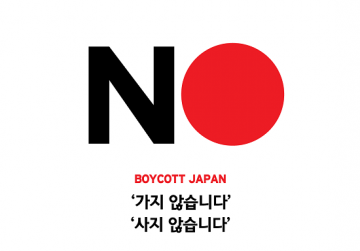
On August 2, Japan announced that South Korea is officially removed from Japan’s White List—a list of countries given preferential treatment on trade. Due to this decision, Japan will be restricting exports of three major chemicals that are essential for Korean companies to manufacture displays and semiconductors.
Although there are many complex reasons for this decision, the main reason is that the Korean Supreme Court recently ordered Japanese firms to compensate the people who were forced into labor during World War II. Shinzo Abe, the prime minister of Japan, claimed that this decision “violates the international law as this issue was already discussed and Japan had to compensate in 1965.” add source
After Japan’s announcement, South Korea’s economy faced a major decline since important parts of its industry heavily depend on Japan. As a result, the citizens of South Korea are boycotting Japanese products with slogans: “We Don’t Go to Japan” and “We Don’t Buy Japanese Products.” Due to this movement, Japanese brands are experiencing a sharp decline in their sales rate in South Korea. For example, Asahi, one of the most famous Japanese beer brands, stopped their business in South Korea due to the boycott.

South Korean tourists were the main part of Japan’s tourism industry. In 2018, more than 10 million Koreans, which is 20% of the population, visited Japan. According to the Yomiuri News, there were “11 airlines operating 128 air routes on a daily basis between Korea and Japan.” However, after the boycott, “43 of the flights (33.6%) are now cancelled or will be cancelled.” Arai Naoki, a professor in Nara University, estimated that “Japan will lose around three billion dollars in the tourism industry due to the boycott.”
Although the conflict between the two countries is heavily damaging the economy of both countries, the tension is becoming more intense. South Korea recently abandoned the General Security of Military Information Agreement (GSOMIA) with Japan, which will cause difficulties for Japan to track missiles from North Korea. (source).
Although South Korea and Japan are currently going through a rough patch, both governments need to negotiate and find a wise solution that would be beneficial for both countries.